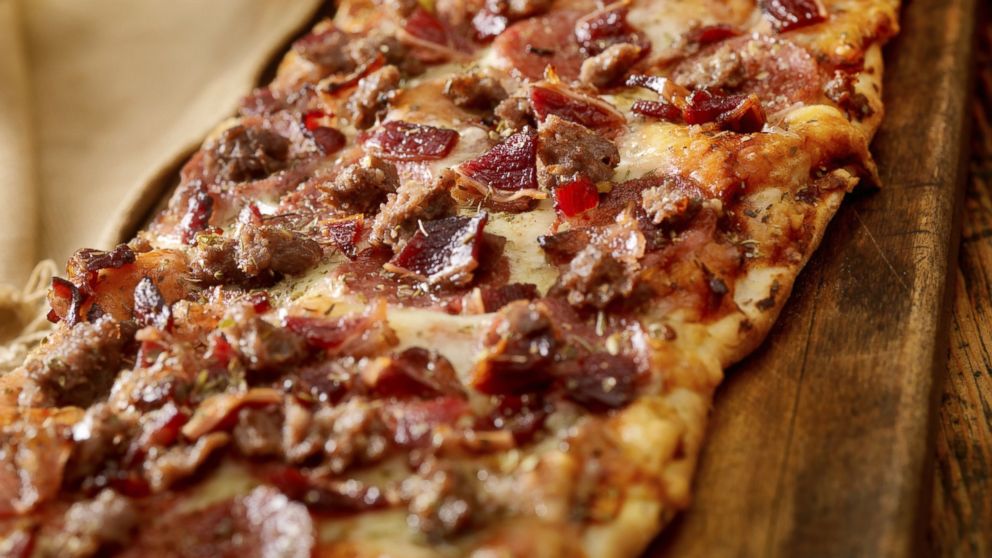The Salty Truth: Many Popular Foods With Unhealthy Amounts of Salt
Pizza, meats among foods with the highest sodium content, study finds.

— -- You may be consuming more salt than you need -- and the salt shaker is probably not to blame.
When researchers at the Centers for Disease Control and Prevention sought to shake out how much sodium -- a major component of table salt -- was in various food items nationwide, they found that the biggest high sodium offenders were pizzas, pastas and meats, nearly 75 percent of which exceeded national sodium thresholds. Additionally, more than half of cold cuts, soups and sandwiches contained more than a healthy amount of sodium.
The researchers looked at nearly 4,000 product labels in three different regions of the country. The study was published today in the journal Preventing Chronic Disease.
For foods to be deemed healthy by the Food and Drug Administration, they must contain less than 600 milligrams of sodium per serving for meals or less than 480 milligrams of sodium per serving of individual food items, which amounts to less than a quarter teaspoon of salt. High sodium intake has been linked to hypertension, or high blood pressure.
"The most important thing for consumers to know is that they should be reading labels, comparing food products, and looking for low or no sodium food options at the grocery store," said Linda Schieb, a lead researcher on the study. Schieb added that the study demonstrates how, in the current food environment, it is difficult for individuals to control their sodium intake because it is already in their foods.
As to the findings, Schieb said she was "surprised" by the lack of regional variation, adding that foods high in sodium content were prevalent in every region her team studied.
But not all diet experts were shocked. Keith Ayoob, registered dietitian and associate clinical professor at the Albert Einstein College of Medicine in New York City, said the findings, while important, should be kept in context depending on an individual's health risk from sodium.
"People just need to make a mental note of where they want to spend their sodium allowance," he said. "Better education and gradual lowering of salt in foods may be the way to go."
Sodium restriction continues to be a priority for the CDC, which suggests curtailing sodium in processed foods could be a good place to start, noting that Americans get more than three quarters of their daily sodium from these sources.
"We are working with the FDA and USDA [United States Department of Agriculture] on guidelines for manufacturers to reduce sodium content," Schieb said. "Everything we can do to reduce the risk of high salt is important."
Limitations of the study include the fact that the database used to capture the sodium content in foods did not include all grocery stores in the United States. Additionally, this database provided information only on the sales of foods with high amounts of sodium, not individual consumption.
Doctor's Take:
While certain foods may contain unhealthy amounts of sodium, consumers can find ways to fit the appropriate amount of salt into a balanced diet. The key is to read the labels when it comes to processed foods -- and think twice about those that are packed with hidden salt. Your heart may thank you.
Dr. Shawn Shah is a medical resident embedded with the ABC News Medical Unit. Doctor's Take blogs explain the latest studies while offering residents' medical opinions.




